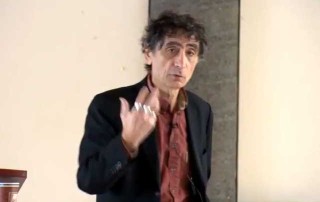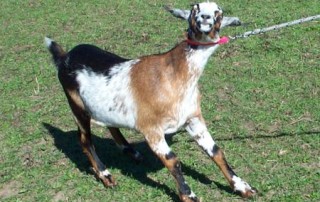In 2008, I attended a workshop given by Dr. Gabor Mate. He is a renowned expert in addiction, addiction treatment, and the impact of childhood stress on the developing brain. Needless to say, I learned more than I could write down and ultimately decided to put my pen down and just listen. What I did write down were the names of the books he has written. I then went and bought all four of them and started reading them all at once (hint #1). They were all full of awesome insight and scientific ammunition. Anyway, one of the books was called “Scattered Minds”, and it was a book about ADHD (Attention Deficit Hyperactivity Disorder). Since so many of my clients have been (or should have been) diagnosed with ADHD as children, I thought I should learn more about it. What I discovered as I madly devoured this book, was that I displayed almost all of the characteristic signs of ADHD and had done so throughout my life. I realize this is a common experience, even the subject of research, called “psych student syndrome” where people tend to over-identify with lists of signs and symptoms and diagnose themselves with every condition […]
10 Favourite Quotes from Dr. Gabor Mate
In no particular order, I present 10 of my favourite pieces of wisdom from Dr. Gabor Mate, bestselling author of “Scattered Minds“, “When the Body Says No”, “In the Realm of Hungry Ghosts”, and co-author of “Hold on to Your Kids”. 1. It is impossible to understand addiction without asking what relief the addict finds, or hopes to find, in the drug or the addictive behaviour. There is a purpose to all behavior and feelings. We just need to look a little deeper to find it. On the surface, addictive or self-destructive behavior seems illogical but if we focus its benefits, few though they may be, we will be able to unlock the mystery of the behavior and put ourselves in a position to change it. 2. The DSM … defines attention deficit disorder by its external features, not by its emotional meaning in the lives of individual human beings. I’ve noticed this in discussing the symptoms with doctors, even those who specialize in treating the condition. The list of symptoms and signs makes very little room for the emotional impact of poor time management, poor attentional control, lack of follow-through, impulsive behavior, and constant restlessness. The list doesn’t touch […]
Three Kinds of Procrastination and What to Do About Them: Part 3
Truth be told, even though these posts are all being published within a few days of each other, I originally started the series back in July. Don’t worry, three months is hardly even in the ballpark of my all-time record for procrastination. I once went seven years between journal entries. Anyway, I hope you’ve got something so far out of the series. Here’s the final instalment. 3. Defiance and Rebellion (Counterwill) Gordon Neufeld, child psychologist and author of the best-selling book “Hold On to Your Kids”, often refers to a natural, instinctive phenomenon which is known as counterwill. Simply stated, counterwill is the instinct to resist the efforts of others to control us. Neufeld demonstrates this instinct in his lectures by inviting an audience member to hold their hand up. He then pushes gently against their hand. As he does so, it is plain to see that, without any thought, the audience member instinctively pushes back. As I said before, counterwill is an instinctive response. However, it may grow much stronger in unhealthy environments. If you are a child who is overly controlled by a parent or authority figure, you may adapt by acquiescing and completely abandoning your own will […]
Playing Dead Emotionally: How Numbing Your Pain Can Be a Curse (and a Blessing)
Fight, Flight and … Freeze? Most people have heard of the “fight or flight” response. It is the body’s naturally hard-wired way of dealing with threats to one’s safety. I have written about it before, a few times, so I won’t go into it again but today I’m going to mention the third part of this response: freeze. In nature, animals typically go to flight first, since they are free of ego and have nothing to prove, only to enhance their own chances of survival. If they can’t go to flight and escape danger, they will go to fight, posturing and growling in hopes of scaring off the threat. If this fails, they will actually engage in aggressive behavior, albeit defensive aggression. Once these two options are unsuccessful, or if they are unavailable, most species have a form of reflexive behavior that could be termed “playing dead”. Playing Dead Emotionally Since most of the threats people face in our neck of the woods are social or emotional (although many do face actual physical threats in many forms), the freeze response may look a bit different than it does for a possum or cat. In our case, we tend to play […]
Dr. Gabor Mate on ADHD (or ADD)
Dr. Gabor Mate expresses it very well. If you have questions, drop me a line.










Recent Comments